C3: Connecting Coaches Cognition
A Podcast for the busy coach
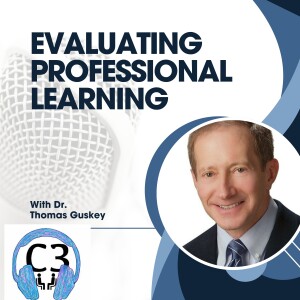
Thursday Jan 09, 2025
Thursday Jan 09, 2025
Episode Notes:
-Thomas has had a wealth of experience teaching middle school and high school. Then he went to graduate school at the University of Chicago. He worked with Benjamin Bloom. He has had the amazing opportunity to learn from such remarkable minds as this.
-We have to give credit to those brilliant people who came before us. Tom worked with Chicago Public School as a Curriculum Evaluator and the Director of Research and Development. Then he moved into a university position at the University of Kentucky.
-He realized he had not taught at the elementary level, so he took a leave from the university and went to go live that experience in her second grade classroom. It has had a profound influence on his work ever since.
-2024 Learning Forward Conference - Evaluating Professional Learning Experiences.
-Donald Kirkpatrick - Evaluating Programs in Business and Industry - 4 Levels of Learning Evaluation for Professional Learning in Business Industry
Participants reaction
Participants learning
How it impacted practice
How did it improve productivity?
-Built off this model with a fifth level- All levels are important, but yet, all are different.
-Organizational support and change - what is necessary to gain a high level of implementation?
-Active ongoing sustained support from building leaders.
-When you plan instructional learning, you have to start at level 5 - look at the evidence we have on student learning and find what improvements we want to make there.
-Begin with the end in mind - Covey
-If you plan well, evaluation takes care of itself.
-We need to recognize that there has never been significant improvement in education on any measure, in any level, in the absence of significant professional learning experiences offered to the educators you have involved. Not all professional learning is effective. But there has never been improvement with the absence of it.
-Need Surveys - Needs versus symptoms - analyze the situation well to address the true needs as opposed to symptoms.
-If you manage learning well, you do not have to worry about managing your learners.
-What evidence do educators most want to gauge their effectiveness as educators?
-Teacher Observation: Please don't watch me, watch my kids.
-Common Formative Assessment
-Bottom line - if my students didn't get it, it did not work, no matter how the educator ‘felt’ the lesson went.
-Whether or not it works is not defined by what we do, it is defined by what our students are able to do. What can I do differently? What else can I try?
-Teachers are the most dedicated professionals that I know, across all professions. They are dedicated to making a positive influence on their students.
-Ralph Tyler - Before you can teach anyone anything there are two fundamental decisions to make. What do you want them to know and be able to do? And you must decide what evidence you accept to verify they learned it.
-Success is tied more to motivation than anything else.
-Students persist at activities in which they can find success. (Think kids with video games).
-It has everything to do with success. Every time they play that video game. They have a chance to improve their score. They had another opportunity for success. They can be successful by following this process. If you show kids they can be successful, they will be. You have to build it in, really early. Build that success into everything we do! We all want success.
-How fast can you see results from a new approach, curriculum, or program? -Two weeks! If we do not see results in two weeks then teachers will be reluctant to continue and likely go back to what they know as tried or true from before. What can we see in two weeks?
-Coaches hold the key to give these individual educators exactly what they want to be successful with their students.
-Experience shapes attitudes and beliefs, changing the experience. There are direct relations between changes in student learning and the shifts in attitudes and beliefs of students. Show kids they can be successful learners, and they will believe in themselves that they are effective in the learning process. The same holds true in parents.
-Remember the Titans movie
Connect with Thomas:
-tguskey.com
-Learning Forward
-Education Week- regular blog
-guskey@uky.edu
-Twitter/x tguskey@gmail.com
-Phone number on his website
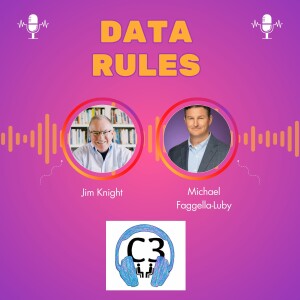
Thursday Dec 05, 2024
Thursday Dec 05, 2024
Jim Knight is a founding senior partner of the Instructional Coaching Group (ICG) and a research associate at the University of Kansas Center for Research on Learning. He has spent more than two decades studying professional learning, effective teaching, and instructional coaching.
Knight has written several books and his articles on instructional coaching have been included in publications such as The Journal of Staff Development, Principal Leadership, The School Administrator, and Teachers Teaching Teachers.
He directs Pathways to Success, a comprehensive, district-wide school reform project in the Topeka, Kansas, School District and leads the Intensive Instructional Coaching Institutes and the Teaching Learning Coaching annual conference.
Michael Faggella-Luby, PhD, is a professor of special education and core faculty of the Alice Neeley Special Education Research and Service (ANSERS) Institute at Texas Christian University. He is also a past president of the Division for Learning Disabilities (DLD) of the Council for Exceptional Children and an associate editor for the Journal of Learning Disabilities. His primary research embeds cognitive learning strategies into subject-area courses to improve reading comprehension for all levels of learners. He has received two national awards for his research, has written 59 scholarly publications, and has presented 90 sessions at national or international conferences.
–Impact Cycle- Universal model for change- Identify- Learn - Improve - ten years of careful study.
-Identify stage- Where you are? Where do you want to get to? And how are you going to get there?
-Improvement - Try things out and figure out what does and does not work. Data makes the invisible visible. Data tells you if you are on track or off track, it is your GPS through the coaching cycle for their learning.
-Data is data, there is no good data or bad data. Data tells us about student learning. Is the data somehow tied to professional learning? Data that is collected and chosen by the teacher. It helps to create that collective dialogue.
-The objective data could be around engagement, teacher to student talk, levels of questioning, or so much more. More heads analyzing the data is better than one. Keep making adjustments and improvements. Collect and review data frequently. Think about engagement or achievement.
-The data helped her see every student. No child was left behind.
-Big data - standardized tests can tell us who is consistently benefiting over time. Big data has a big view. Small data is the sweet spot. Teachers identify the data they want to collect to have those micro influences on the small data which can lead to changes in the big data over time. Small data can make a big difference.
-Engagement: behavioral engagement, cognitive engagement, or emotional engagement. All data is imperfect. Match your assessment methodology to the kind and level of learning you are wanting to see.
-A.I. and the ability for it to remember such huge quantities of information. It is good for specific tasks. Audio files of their teaching. ChatGPT is constantly evolving. It will always give you an answer but it may or may not be what you are looking for. It has enormous potential but it does have limits. It will never replace the teacher or the coach.
-Coaching is helping others unleash their potential. Coaching is also about keeping kids first and doing what is best for kids. Having an unmistakable positive impact on the lives of kids.
-A coach is saying I am right there with you. Just asking some questions helps you to be the very best of what you can be.
Connect with Jim and Michael:
-https://www.instructionalcoaching.com/
-@Jimknight99
-@strategicdoc
-https://coe.tcu.edu/about/faculty-staff/view/michael-faggella-luby
-jim@instructionalcoaching.com
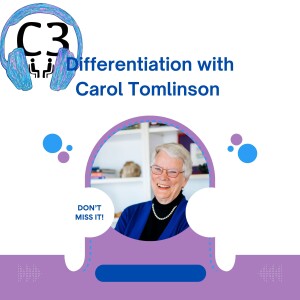
Thursday Nov 07, 2024
Thursday Nov 07, 2024
Carol Ann Tomlinson is William Clay Parrish, Jr. Professor Emeritus at the University of
Virginia’s Curry School of Education and Human Development. Prior to joining the faculty at
UVa, she was a public school teacher for 21 years. During that time, she taught students in high
school, preschool, and middle school, and administered district programs for struggling and
advanced learners. She was Virginia’s Teacher of the Year in 1974.
Carol was named Outstanding Professor at Curry in 2004 and received an All-University
Teaching Award in 2008. In 2023, she was #16 on in the Education Week Edu-Scholar Public
Presence Rankings of all university-based academics who are contributing most substantially to
public debates about schools and schooling. In that same list, she was ranked as the #4 most
influential voice in Curriculum & Instruction.
Carol is author of over 300 books, book chapters, articles, and other educational materials
including: (from ASCD) How to Differentiate Instruction in Academically Diverse Classrooms
(3rd Ed.), The Differentiated Classroom: Responding to the Needs of All Learners (2nd Edition),
and (with David Sousa) Differentiation and the Brain: How Neuroscience Supports the Learner-
Friendly Classroom. Her most recent books are: So Each May Soar: The Principles and
Practices of Learner-Centered Classrooms (ASCD, 2021) and Everybody’s Classroom:
Differentiating for the Shared and Unique Needs of Diverse Learners (Teachers College Press,
2022). Her books on differentiation are available in 15 languages. Carol works throughout the
United States and internationally with educators who seek to create classrooms that are more
equitable and effective for academically diverse students.
-Never intended to be a teacher, but ended up a middle school educator. Traveled and commuted with a friend who became her learning partner. She had a diverse range of needs within her classroom of 40.
-If we taught the whole class we were doomed, we needed to try something new.
-We wanted our students as our partners. They told us how to help them more, what they liked, what they disliked, and what we could tweak to make learning better. She remained in that school for 21 years.
-Differentiation -is a teaching model and it has to do with everything we do within a classroom and within schools.It can give us guidance to be better in every aspect of how we teach.
-Resistance is human. Our job is not to wallow in it but to circumvent it. Our job is to make this classroom better for whoever walks through the door that day.
-Coaching should not be a revolving door schedule. There is more opportunity when coaches deeply understand differentiation first and let go of their, “yes, buts…”
-Help a teacher move forward confidently and competently-Teaching is complex. A good leader needs to be a little ahead of the game.
-Aspire to get better in all elements of teaching- one element at a time.
-Voice and choice are important in their learning, they have things they can teach us. Use time and space and materials flexibility. We can reach out to connect children's experience, their experience and their knowledge.
-Show us that you know this, understand this and then can you show this, and can make a choice in how you show me. Make your choice in how you can show what you know.
-There are many ways to be able to reach out to kids. Putting students at the center of their learning and teaching. What about these students? It is helping them to take charge from there. Scaffolding is so vital to so many learners.
-Grace, the bottom line is grace, everyone in education needs to give themselves and each other grace every single day.
Connect with Carol:
Twitter-@cat3y
LinkedIn-Carol Ann Tomlinson
ASCD - Carol Ann Tomlinson
So Each May Soar: The Principles and Practices of Student Centered Instruction or Everybody’s Classroom
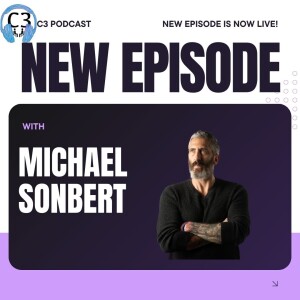
Thursday Oct 03, 2024
Thursday Oct 03, 2024
Coaching is intentionally building skills, showing and modeling best practices, and intentionally training people to be better.
-His work has been in some of the most difficult zip codes to work in. They see coaching in more of a model practice. They define clear directions.
-Sky Rocket Your Teacher Coaching (Skyrocket Education and Rebel Culture)
-Intentionally building the relationship, and finding out about them as a person, realizing there is an amazing human here. Their perceived resistance from this person was actually just them wanting to know how to get better and not liking conversations that felt cloudy, they liked straight talk. Knowing what works for people and what doesn't is needed. It is powerful being able to connect with people and have them trust you.
-Relationships are at the heart of our model.
-Expertise is something that builds relationships. When someone can put their trust in you. No teacher wants to waste their time. Relationships are built when one person feels like they are in very safe care with the other.
-Accountability, a promise that we make to each other, it is important, like any relationship. I can count on you and you can count on me. Shared expectations for success can be pivotal. Set those expectations to be able to hold each other accountable.
-We think of schools as high reliability organizations, like airlines or hospitals, when adults make mistakes people get hurt - short term or long term. To hold people accountable, we have to do that on the front end. Let's discuss what we previously agreed to.
-Shared accountability to maximize time.
-We need to commit to doing these things together, and then we can hold each other accountable. It can be the kindest thing you can do for someone.
-It is never too late to set shared expectations in a coaching cycle. What do you need from me to be successful? Or just start this in the next cycle.
-AI and coaching
-Coaching vs. support
-What is the problem you are trying to solve right now?
Connect with Michael:
-Skyrocketed.org or Rebelculture.com
-michael@skyrocketed.org or michael@rebelculture.com
-Instagram @michael.sonbert
-LinkedIn - Michael Sonbert
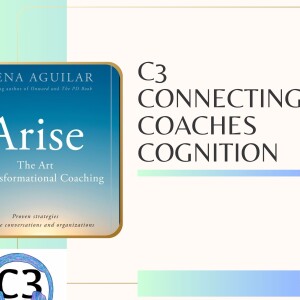
Thursday Sep 05, 2024
Thursday Sep 05, 2024
There is nothing more powerful that we can do, than knowing our own selves. When we know ourselves, we know how our past affects our present, and forms our vision for the future, and we are so much more empowered!
-Lonely and isolated, she entered into the profession feeling unsure of what she was doing. Belonging and acceptance was the core, as well as building community. That commitment continued in coaching, as a leader, and now as a facilitator of learning spaces. It is one continuous thread as a result of my experiences as a kid.
-I value that commitment to creating community as well as belonging and a sense of acceptance.
-I work from a way, the actions take help to build to reflect and the connection or community.
-I am aware of the fundamental need for psychological and social safety and connection.
-My commitment and vision in my work is to help people thrive. The core needs are belonging and connection.
-I have created a community in my life. Classroom community is everything. Feeling valued is everything.
-Knowing and Doing Gap - We know we want this but not sure how to make this a reality.
-Arise Book- Tell people exactly how to say this and what we do. We need granular instruction.
-We are humans, we get activated, we have emotions. My work comes in when we have to get very specific with people. Try this, say this, do that, shift these beliefs, explore this way of being that you may be acting from.
-Transformational Coaching Rubric: The rubric and model differs from traditional models as it is way more holistic. It encomapasses what it means to be a full range of what it means to be human working in schools both personally and professionally. The new rubric reflects the expansiveness of the model. It is intended to be a guide to cultivate their own growth and development. The rubric names what is most important.
-Cultivate your own responsiveness within the model.
-Emotional Intelligence?- Explore your why!
-Window of presence - indicators of emotional intelligence.
-How do we bring our past into our presence?
-How do we schedule ourselves? Physical movement between coaching sessions.
-Build trust and relationships as a coach.
-Resistance is fear.
-Empathy and compassion - activate
-Be appreciative and curious - build resilience!
-With resistance- build resilience and your perception of others. Let's find a place in ourse;lves where we feel compassionate!
-Let's be human with each other…
-What is possible? We can have conversations.. We can have real connections…
-Resistant vs. showing up defensively, because they are afraid.
-Let’s get curious. Empathy. Humility. Curiosity. Be Open.
-Cultivate awareness of yourself. Say things like “Am I getting this right? Can you help me to understand? I am appreciative of that!
-Strategies of resisting trust - always at stake- true honesty and courage. Repair trust
.
-Cultivate awareness of yourself, be compassionate and aware!
-Naming can be powerful.
-Be appreciative, curious and most importantly listening.
-Build resilience when the well seems low !- Let's start with your perceptions of others. Recognize resistance is fear and can we find a place in ourselves that is compassionate? Feelings of fear are the worst!
-Can we be human with each other?
-We need educational transactions, where there are partners and curiosity and compassionate.Let’s reflect on how we interact with one another. Let’s consider these possibilities
-What’s possible here and who cares? Who do I partner with? What is possible?
-Learning Library consists of skill sessions.
-Connect with Elena:
Twitter: @brightmorningtm
Podcast: BrightMorningPodcast
Website: https://brightmorningteam.com/

Thursday Aug 08, 2024
Thursday Aug 08, 2024
-Coaching is seeing a person who is carrying the weight of life, and finding their way. This model is so respectful. It is about people making progress and positive changes.
-Every industry needs coaching.
-An expert is the person who experimented and failed the most. Seeing people as the experts in their lives.
-Dialogic Orientation Quadrant ( DOQ) - organizes the content you are listening to. Its function is to map the conversation. Utilizing a time line and a preference line to map what you hear. Preferred future, resourceful past, troubled past, and dreaded future are the quadrants. Which quadrant do you want to grow?
-Coaching A to Zed - Extraordinary Use of Ordinary Words We use many of these words every single day to create that extraordinary shift.
-Rest as resistance
-Suppose that did change, what difference would that make for you? What do you want instead? Better to approach what we want, than avoid what we don't want. Let’s suppose instead of impose. Keeping the conversation anchored in reality.
-You don’t know. You don’t know, yet. What do you think would be useful to know? What can you do about it?
-Supposing and scaling questions. Ask how you get up to that number. It helps them to see their progress of how they have gotten to this number. How do we honor their existing progress while not pressing on for more?
-Coaching is curating, not narrating, but curating and co-authoring the preferred stories of our client's purpose, possibilities, and progress.
-What did I just hear the person say that they want?
Connect with Dr. Moon-
LinkedIn -Haesun Moon
https://www.briefcoaching.ca/hsm
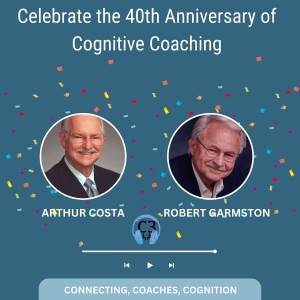
Thursday May 02, 2024
Thursday May 02, 2024
-Art and Bob have worked together for over 40 years at California State University at Sacramento. Cognitive Coaching was born through this relationship. ‘We have these things in common, let's talk further.’
-A coach is used in many different ways, typically in an athletic realm. There is a distinction between these types of coaches and cognitive coaches. A coach is a person who, alongside the person being coached, helps mediate between the person and the experience. The coach helps the coachee pay close attention to the actual experience and all of its dimensions including their own thinking processes, as well as results. The coach is like a median on a highway. The coaches’ intention is to support self-directed continuing learning for individuals. The coach intervenes in the thinking process of the educator.
-Teachers have a map in their mind of where they are and where they are going. They have a plan of action and want some outcomes and have a vision of their kids in their head. A coach tends to illuminate that and make it more explicit, more refined and bring forth thought processes that the teacher may not have thought about. This would happen before the teaching or after the teaching has happened. The coach could discuss with the teacher prior to teaching, after the lesson to reflect on the lesson and learn from it to carry forth their learning. It is a continuous growth cycle. The coach facilitates this cycle to plan and reflect to engage in ongoing learning.
- Deeply buried in the teachers' experiences, knowledge and passions they have answers to their own questions. Teachers can find the answers within themselves. The goal is to build autonomy. Coaches do not need to supply answers. Eventually the goal is that the teacher takes over this reflection and they coach themselves in order to turn over the coaching to the educator. We don't want to build dependency and instead we want to build autonomy. Cognitive Coaching is a developmental process that keeps on going. We are building self efficacy to be self-sufficient with their own innovations, creativity, and generate new and exciting ideas.
-States of Mind: Flexibility, Efficacy, Craftsmanship, Interdependence, and Consciousness. Coaches help others develop these capabilities.
-Positive Presupposition is needed. People act the best way they can in the moment. Communication is a vehicle for important messages. We pay close attention to the total message of what we are receiving. We can detect exactly when someone has moved from distress to eustress or had an ‘ah-ha moment’. We have to live in a place of deep trust and rapport to do Cognitive Coaching well.
-New technology and A.I., as well as great demand on diversity in schools, made it so they are re-examining where Cognitive Coaching fits. The role of the coach is being shifted by A.I. What does Cognitive Coaching look like for the 22nd century? They are under study on how to adjust to those changes while never losing the human capacity to relate to one another.
-We are learning in Cognitive Coaching how to be true, deep listeners. We don’t interrupt, we do not agree or disagree. It is an expression of love and humanity. It is an expression of you are not alone as we move through this crazy world. We believe that Cognitive Coaching goes well beyond the schools or the coaching setting. It helps to create a more loving environment and a better humanity. We dedicate ourselves to that goal as it is what the world needs now.
-They have a new book coming out this year. It hones in on key principles and values of Cognitive Coaching and how they apply in different settings: business, health sciences, clergy, and other differing fields.
-We need to make an effort to maintain our best intentions and best services.
-Advice to a coach - The transformation when you learn Cognitive Coaching is like a new illumination and a real mind shifter. You give up old ways and adopt new and more powerful ways. It builds strengths, fortitude, and commitment. It is a gradual transformation and builds a new coherence in your life. It gives you a new outlook. It is a transformation of your thinking.
-Have patience with one’s self, patience with how it takes time to learn some of these skills, and patience in finding collaboration in the journey. There is something about learning in a group, in which the group is learning to help each individual, and simultaneously each individual is learning to help the group. Each profits from each other’s thinking. The interchange is so important.
-Coaching is a service leadership type of role. We believe if the other person comes first, the learner. Then we all learn as a result of that process.
-The Thinking Collaborative is an organization mechanism in which people are trained to coach, learn aspects of coaching relationships, seek support, and spread this work.
Connect with Art and Bob-
-https://www.thinkingcollaborative.com/
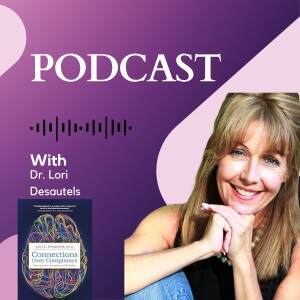
Wednesday Apr 03, 2024
Wednesday Apr 03, 2024
-Connections Over Compliance- Our nervous systems are social systems. The educational system consists of us being with other people all the time. COVID created a huge social loss. It is even more relevant in this time.
-Attachment builds the brain. “We work for people we like; we respect people who respect us.”- Rita Pearson
-Touchpoints where you resonated with each other, student and teacher. It was through relationship and discipline. Relationships are key to making forward progress.
- Trauma logic, relationship resistance. Patterned, repetitive experiences learning how to create, serve and return between two people.
-Neuroplasticity - every experience that we encounter has the ability to structurally and functionally change us. Growth mindset and accessing the executive functioning.
-All behavior is a form of communication. All behaviors are indicators and signals from the nervous system. ‘I can learn a bit more.’
-Modeling, Co-teaching, and support for educators. Walking side by side with educators.
-Connections over compliance through revelations in education.
-Self-reflection: retreat and take some breaths to compassionately detach so you can be fully present.
Connect with Lori:
Website: revelationsineducation.com
New Book: Intentional Neuroplasticity
Body and Brain Brilliance Book - Coming soon
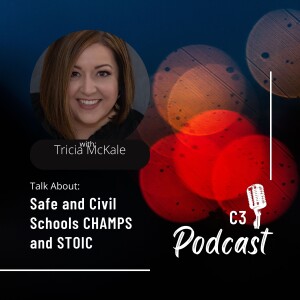
Wednesday Mar 06, 2024
Wednesday Mar 06, 2024
Tricia McKale
Show Notes:
-Preparedness meets lucky opportunities - Middle school teacher turned Instructional Collaborator via Jim Knight.
-Working with adults with a lot of trial and a lot of error. Found that the behavior management system was getting in the way of us doing instructional coaching. Behavior is where my life is at and I was a Tier 3 student in school.
-C.H.A.M.P.S. - Conversation. Help, Activity, Movement, Participation, Success. Think about different modes of learning throughout the learning day. That is one portion of a really comprehensive behavior management plan is your expectations for instructional activities.
-Moving toward and a real emphasis on the S.T.O.I.C framework. S.T.O.I.C. is a culmination of all the variables of some level of power and control over. How do we set up a system of observation to provide feedback to children? An umbrella under which C.H.A.M.P.S. belongs.
-All the acronyms - We need to clarify and unpack all the packages of those acronyms for our new teachers and all of us. We need to find a way to navigate through them fluidly to best serve the needs of our kids and educators.
-Creating a system or framework of support for all staff. We want teachers to apply it in order to have an unmistakable impact. Truly MTSS as leaders and coaches- comprised of both evaluators and nonevaluators to create that for staff. Let leadership teams proactively build that staff support.
-Behavior support is an underpinning to good instruction. However, if you have good instruction that may eliminate many big behavioral issues within your classroom. How to leverage Coaches within Tier 1? Where are we having system challenges? Systemic change is the key to change over time.
-Interdependence between honoring your administration, your system goals, and your educators, “How do we navigate this system-rich environment?” How do I actively engage this group of kids?
- Can you create a sense of urgency without a sense of overwhelm? Is that possible? What are the small steps? What were the expectations not being met?
-If you were to coach someone who was going into coaching and you could only say what you could say, what would you say?
-Lets look at the system in which coaching was occurring.
- If you were to say someone was headed into coaching and they had one hard thing to face, what would you tell them? How do you find the interdependence between balancing administration and system goals while honoring them, as well as the teacher in front of you, and respecting the finesse, and nuance to help each other all see each other’s perspective and build that remarkable synergy?
-Validate all entities, and rock the boat, while staying in it. What are our true beliefs? What are those really big challenges? How might we master the communication challenges to make that happen? We have much more in common than we have in different. Shut off the advice monster.
-You have to suspend the idea that you have all the answers to push forward.
- We do the best we can. Of course, it is difficult to receive constructive feedback of any kind”: we have to stop thinking of ourselves as perfect entities. If we think of ourselves as “goodish entities” then we are on the right path!”
-Stop solving, start asking, efficacy! Our goal is to bring out the efficacy in others. Stop solving, start asking.
-STOIC Screener in the book to help provide that data as a third point in a coaching conversation. How to coach various coaching situations.
-It is not us, it is always them. You took the tools, ran, and put them into place. Small changes made such a huge difference. Use a solid research-based approach through a coaching dialogue.
-Holding the individual and the system all in one is pivotal.
-Meet attack with inquiry.
-We tried. Master the starfish effect. Make a difference to that one. The day-to-day wins have to be enough to sustain you.
Connect with Tricia:
safeandcivilschools.com

Wednesday Jan 31, 2024
Wednesday Jan 31, 2024
Sherry St. Clair is the founder of Reflective Learning LLC, an educational consulting agency based in Kentucky. Her organization works with schools around the world, creating specialized training and coaching services for school administrators and educators. She holds a master’s degree in Instructional Leadership and a Rank 1 in Instructional Supervision.
Sherry has served as a Senior Consultant for the International Center for Leadership in Education and Houghton Mifflin Harcourt. As an international consultant, Sherry draws from her rich experience at various levels of public education–teaching elementary school, being an administrator in a high school of 1,300 students, working as a state consultant, and creating and facilitating virtual courses. Sherry is a highly regarded national speaker and consultant, providing educational agencies with expertise in instructional leadership, effective classroom practices, classroom walkthroughs, effective use of data, and guidance on how to create structures for successful classroom coaching. Coaching schools to best meet the needs of all students is Sherry’s passion.
Sherry is a contributing author to Effective Instructional Strategies Volume 2 published by the International Center for Leadership in Education and 100 No-Nonsense Things that All Teachers Should Stop Doing. She has published numerous professional learning activity guides and facilitated webinar series focused on leadership and effective instructional practices. Additionally, Sherry developed virtual instructional workshops for the CTE Technical Assistance Center of New York. In partnership with the Successful Practices Network, Houghton Mifflin Harcourt, and The School Superintendent Association (AASA), Sherry has recently been a part of bringing innovative practices to scale. Her publication, Coaching Redefined: A Guide to Leading Meaningful Instructional Growth, was released in June of 2019.
Show Notes:
-Intentional coaching is to help both teachers and coaches think about the intentional steps needed to grow in a given area.
-Take smaller steps towards those big goals and be intentional with those steps. What is one small change you can make? Go on a journey to grow from where we are and keep moving forward.
-Student discourse- If we don't have student discourse in a classroom then where do we start? If we have a little, how do we start? The book's purpose is to look at what is out there in research around proven ways for students to learn and think about how we can help teachers implement those effectively in their classrooms.
-Students need to feel safe and have time for those academic conversations. Coaches need to think of the small incremental steps a t teacher can do to meet the true student discourse and big gains in student learning.
-When we don't layer on so many things on our teachers' plates and instead have an intentional focus on those small steps, we see huge growth.
-Coaches have to be a filter for things happening within their school system and it is truly an honor. You have to keep in mind the broader goals of the school. How do I pull all of that together?
-We only keep trying to get better and better. Just keep swimming. Let it go. Shake it off. Just keep moving forward. Just keep improving a little bit more each day. There are some days you can run fast towards your goal. There are some days you can walk towards it. And there are some days you need to just rest. And it is all about moving forward.
-Be mindful of the listening tour as a coaching superpower. Being female is powerful. We are compassionate as instructional leaders.
-Autonomy, Mastery, and Purpose
Connect with Sherry:
Website: Reflective Learning, LLC
Twitter: @Sherrystclair
Facebook: Sherry St Clair
Instagram: Sherryst.clair
A Podcast for the busy coach